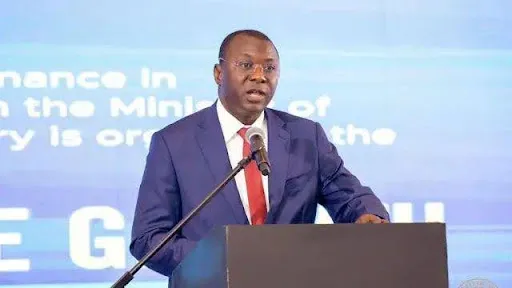Economist Criticizes Gov’t’s Decision to Return to Int’l Capital Markets Amid Ongoing Debt Concerns
In a statement shared on social media, Dr. Kwakye expressed skepticism about Ghana’s capacity to manage new borrowing while still grappling with its debt overhang.
- Advertisement -
Ghana’s decision to re-enter the international capital markets following a successful $13 billion Eurobond restructuring has sparked criticism from prominent economists who argue that the country’s debt crisis remains unresolved.
Dr. John Kwakye, Director of Research at the Institute of Economic Affairs (IEA), voiced his concerns about the timing of the move, questioning whether the country is ready for a return to external borrowing given its ongoing fiscal challenges.
- Advertisement -
In a statement shared on social media, Dr. Kwakye expressed skepticism about Ghana’s capacity to manage new borrowing while still grappling with its debt overhang.
- Advertisement -
“Do we really need to return so soon to international capital markets when our debt crisis is not yet over and we have suspended external debt payments? Why can’t we try to balance our budgets to reduce borrowing?” he asked.
His remarks come just days after the government announced that Ghana had regained access to global markets following the completion of its Eurobond restructuring deal on October 8.
The restructuring process, which had been in the works for several months, saw the government reach an agreement with over 90% of bondholders to exchange existing Eurobonds for new securities under revised terms.
The deal is expected to provide significant debt relief, with a reduction of Ghana’s debt stock by $4.7 billion and cash flow relief of approximately $4.4 billion over the next two years, according to the Ministry of Finance.
In a statement, President Nana Addo Dankwa Akufo-Addo heralded the agreement as a turning point for the country’s economic recovery.
“This landmark achievement ushers in a new phase of economic recovery, returning Ghana to a sustainable debt path and putting us back on the investor map. We’ve accomplished what everyone said was impossible – we decisively resolved Ghana’s debt overhang problem,” the president said.
- Advertisement -
Finance Minister Mohammed Amin Adam echoed these sentiments, stating that the restructuring would help stabilize Ghana’s finances and restore market confidence. The government noted that the deal, which was supported by the International Monetary Fund (IMF) and key official creditors, has already had a positive impact on Ghana’s macroeconomic indicators, including a significant drop in inflation and a surge in GDP growth.
However, critics like Dr. Kwakye remain unconvinced that the worst of the debt crisis is behind Ghana. He emphasized that external borrowing should be approached cautiously, especially given the country’s suspension of debt payments and lingering fiscal vulnerabilities.
Analysts have echoed these concerns, pointing out that while the restructuring offers temporary relief, the broader challenge of achieving long-term fiscal sustainability remains.
Ghana had lost access to international capital markets in 2022 due to unsustainable debt levels, a situation exacerbated by high borrowing costs and inflationary pressures. The government’s return to global markets is seen as a bid to signal renewed confidence in its economic recovery, but the path ahead remains fraught with risks, particularly if fiscal discipline is not maintained.
The government, however, remains optimistic. In its statement, the Ministry of Finance praised the collaborative effort between bondholders, the IMF, and its official creditors, and expressed confidence in the reforms underway.
“Today’s completion of the restructuring will help Ghana restore debt sustainability,” said the finance minister, adding that the deal would pave the way for further investment and job creation in the coming months.
As Ghana re-enters the global financial arena, the challenge will be balancing its need for external financing with the imperative to maintain fiscal discipline and avoid a relapse into unsustainable debt.
Whether the restructuring marks a genuine turning point or merely a temporary reprieve remains a critical question for investors and policymakers alike.
Source:norvanreports.com
- Advertisement -


